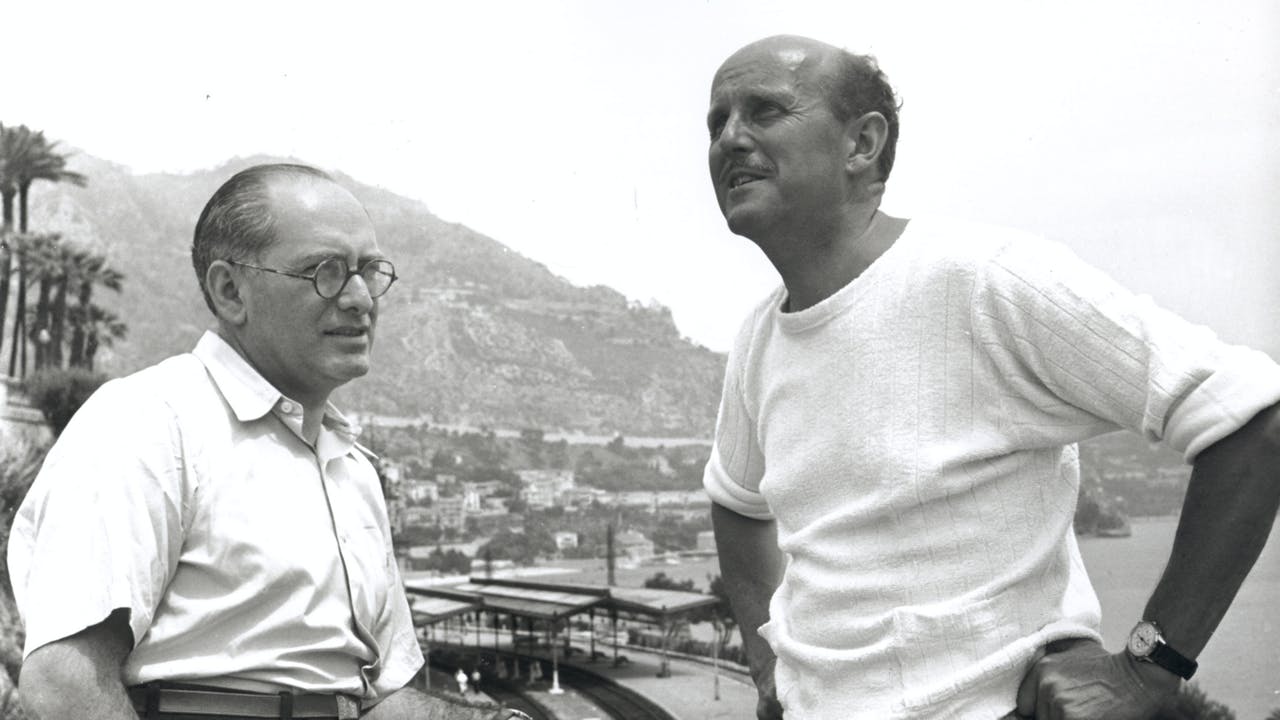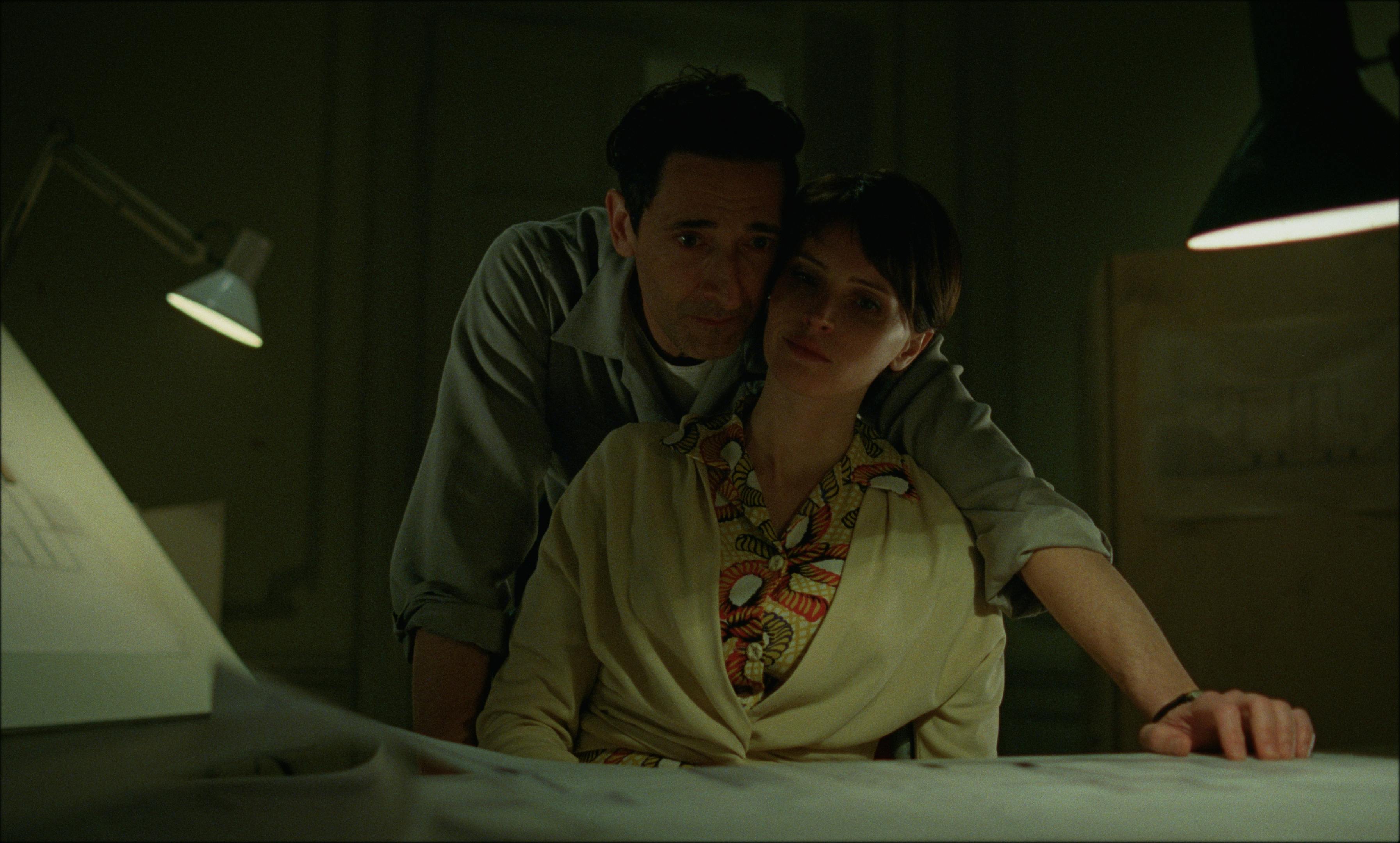Emma Stone is weird now.
The finale of her HBO series The Curse ended with a disorienting and surreal violation of the laws of physics. In Yorgos Lanthimos’s Poor Things, she played a woman whose brain was replaced with that of her own unborn child. Now she stars in an absurdist triptych film by Lanthimos that includes a tyrannical boss, reanimating the dead, and cannibalism.
Kinds of Kindness is the most recent effort in this strange stretch for Stone, which, frankly, couldn't come at a better time.
What’s significant about all three of these projects is that not only is she top-of-the-line billed, but she’s also a producer. Throughout her career, Stone has successfully performed the showbiz gymnastics routine; making the jumps from lovable ingénue in teen comedies, to acting in more serious fare with respected directors, and has now stuck the landing as master of her own domain.
Part of that privilege comes from the bankability of the name Emma Stone –or Emily, or whatever you’d like to call her (according to her). Another stems from the power of running her production company, Fruit Tree. Having that combined influence affords her the control to pick and choose her own projects and collaborators, rather than be subject to Hollywood’s tempestuous whims.
Stone hasn’t completely eschewed major studio fare. There’s fun (and money) in providing voice performances for The Croods franchise. We all sat shiva when those dastardly dalmatians killed her mother in the stylish Cruella. But what franchise and Disney prequel roles reveal is that an A-list talent and name like Stone’s has to be bundled with studio I.P., where the brand is the true star.
Reliance on familiar properties and nostalgia rather than star power has been de rigueur in Hollywood since The Avengers first assembled in 2012. The loss of the reliance on star power to open a movie, along with studios slashing the number of theatrical releases, has left A-listers scattered to the winds of streaming, limited series, and TV.
Back then, Stone was part of Sony Pictures’s effort to play catch-up with the young phenom Marvel Studios; starring as Gwen Stacy alongside Andrew Garfield in The Amazing Spider-Man. Her earlier roles in Easy A and Superbad put her into the pop culture lexicon as a vibrant young actor with a strong comedic sensibility. She also displayed her good taste and sound judgment in the roles she went out for.
Her more mature roles in The Help and Gangster Squad lead her to established auteurs like Cameron Crowe and Woody Allen. She checked the respected biopic box when she played Billie Jean King in Battle of the Sexes, but it was her work with her up-and-coming filmmaker peers that catapulted her to the top of the awards season ballots.
She earned her first Academy Award and BAFTA nominations for Alejandro G. Iñárritu’s Birdman or (The Unexpected Virtue of Ignorance). Her first wins came with Damien Chazelle’s musical pastiche La La Land. A few years later, Stone would begin her creative partnership with the incendiary filmmaker Yorgos Lanthimos. Their first collaboration, The Favourite, returned her to the awards circuit.
Lanthimos came up with a group of filmmakers including Rachel Tsangari and Christos Nikou who fuse curious realities with dark humor. Movies like Attenberg, The Killing of a Sacred Deer, and Apples were refreshingly intriguing and strange. As every good artistic movement needs to be properly categorized and labeled, this one was “ingeniously” dubbed the Greek Weird Wave. The humorous and off-beat nature of Lanthimos’s work dovetailed for Stone with another unique rising voice, Nathan Fielder.
It was around this time in 2020 when she and her husband, Dave McCary, founded Fruit Tree, a film and television production company thanks to a first-look deal with indie studio A24. Fruit Tree follows in the footsteps of other stars who used their success to set up shop in Hollywood. Margot Robbie’s LuckyChap and Reese Witherspoon’s Hello Sunshine offer them more control over their careers and the ability to work behind the camera.
Under the Fruit Tree banner, Stone produced The Curse as well as the triumphant Poor Things. Both projects are tonal outliers in their respective fields, offering peculiar delight with high production value to audiences starved for entertainment that isn’t designed to appeal to a maximum amount of people on the planet.
In Poor Things, Stone brings a Disney princess quality to the monstrous Bella. As with The Curse, her presence provides a familiar face for audiences who might balk at their peculiar aesthetic and points-of-view as well as some reassurance for the studios who take a chance on their bottom line releasing these projects.
Fruit Tree doesn’t simply exist to put Stone front and center. Building on the success Stone found with her contemporaries, the company is behind the work of exciting voices interested in embracing the bizarre discomforts of contemporary life. The unsettling realities of Jane Schoenbrun’s I Saw the TV Glow and Julio Torres’s Problemista showed what these young talents could do when given a decent budget.
Stone will produce Fielder’s feature directorial debut Checkmate. She also produced Jesse Eisenberg’s first feature When You're Finished Saving the World and the upcoming A Real Pain; a feeling-bad-to-feel-good comedy for which Eisenberg, and co-star Keiran Culkin will surely receive awards attention.
Kinds of Kindness is a stylish victory lap for the Lanthimos/Stone ticket. A three-part anthology film that offers a Twilight Zone quality to Lanthimos’s eccentric expressionism. Each story echoes the last, knocking you off-balance at first before it slowly reels you back into your seat. It will surely appeal to a more specific audience than Poor Things but the mere fact that Disney (through Searchlight Pictures) is giving it a theatrical release, rather than pushing it out on Hulu, can be seen as a win for “the movies” these days.
We’re in a time when Disney’s dominance and the proliferation of streaming content have flooded viewer’s attention spans with material made for the widest possible audience that dissipates from your mind the minute it's over. Untested and unconventional has become a liability to the studio's bottom line. Stone is providing some assurance that she and her creative cadre can provide something to defy our sensibilities and expectations.






